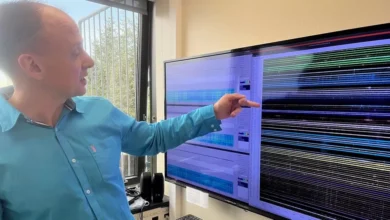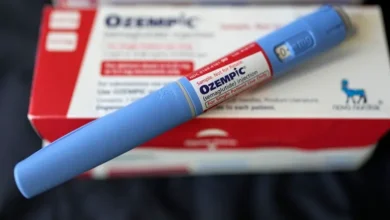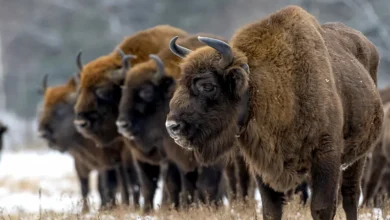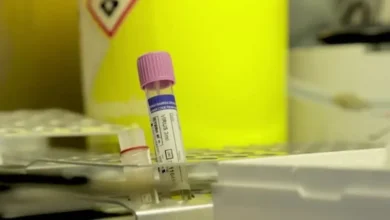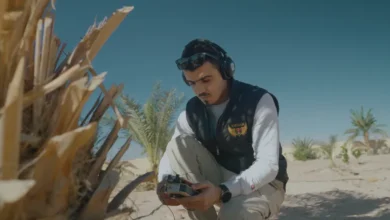Farmers and vets facing mass cull trauma need more help
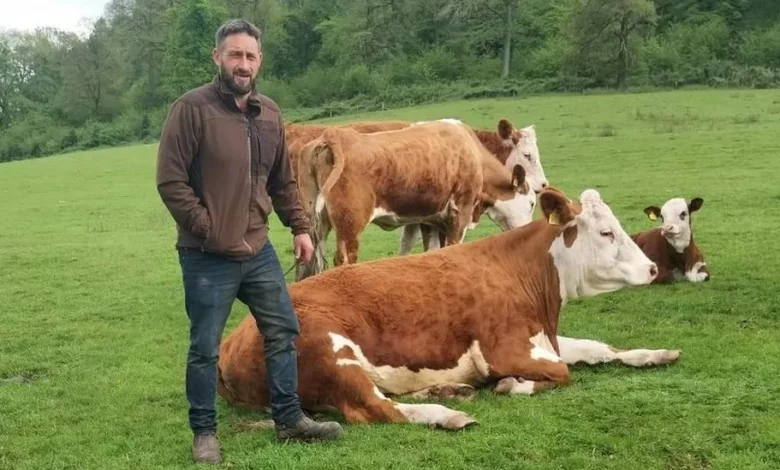
Mass culls to control animal diseases like bird flu are leaving farmers and vets facing mental health trauma with little support, a new report says.
A cross-party committee of MPs found there was a lack of health services in the countryside offering long-term support to those hit by such crises.
It called on the government to fund a “critical mass” of frontline health workers specialising in rural issues.
The government said it was committed to providing rural health services.
The UK Parliament’s Environment, Food and Rural Affairs (Efra) committee published the findings of its inquiry into rural mental health on Thursday.
The report said that crises or “shock” events such as animal disease outbreaks “can be very detrimental for the mental health of the farmers and the vets involved”.
The world is currently suffering its worst avian influenza outbreak, with millions of poultry culled. Meanwhile, last year more than 22,000 cattle were slaughtered in England due to bovine tuberculosis (bTB).
Sam Stables, 43, is a Herefordshire farmer who founded mental health charity We are Farming Minds with his wife Emily. He said more needed to be done to support farmers dealing with the impact of disease outbreak.
Mr Stables said culling necessitated by a disease outbreak can have “a horrendous effect on a business, on a whole family”. But he said it was not just farmers affected by culling.
‘A dark place’
“If a farm goes down to TB it’s the vet who has to break the news. Vets know just how much that is putting a family under – you’re dealing with their livelihood. A vet giving out a failed TB test, well, it’s devastating,” he said.
The Stables have been running the charity since 2020, offering a befriending service and a dedicated 24-hour helpline to farmers, which is staffed by trained volunteers.
The father of two said he himself had experienced mental health issues brought on by the isolation and pressures of farming. Eleven years ago, when he was “in a dark place”, he planned to take his own life.
He said more had to be done to support farmers who, like himself, do not usually talk about their problems.
“When a farmer says they are suffering mentally or feeling suicidal you know you have to take it seriously – that’s a rare event. They are such a proud people,” he said.
James Russell, a farm vet of 21 years who now teaches at Nottingham University’s veterinary school, said employers needed to recognise the pressures on young farm vets, and support them.
“Vets are let into the inner circle of a farming family and that comes with a lot of responsibility, particularly if you are person delivering bad news. Vets take that responsibility very seriously and it weighs heavily,” he told the BBC.
“The message I give my students is ‘make sure you interview the practice you are going to’ because good practices give support very, very well. Bad practices are leaving people without the support they need.”
The committee found there was little in the way of long-term targeted mental health support for those hit by disease outbreaks.
It said the government should fund and roll out mental health first aid training to create “a critical mass” of front-line support workers dealing with farmers and those working and living in rural industries and areas.
Committee chairperson Sir Robert Goodwill said rural mental health needed to be a “top priority”.
MPs also said they had “deep concern” about how isolation, poor public transport links and a lack of digital connectivity have all contributed to “poor mental health outcomes” for all rural communities.
A government spokesperson said: ‘We are committed to providing the public services that rural areas deserve.”
“We are also providing mental health and wellbeing support through the Future Farming Resilience Fund and working with charities, to ensure farmers can access the support they need.”
